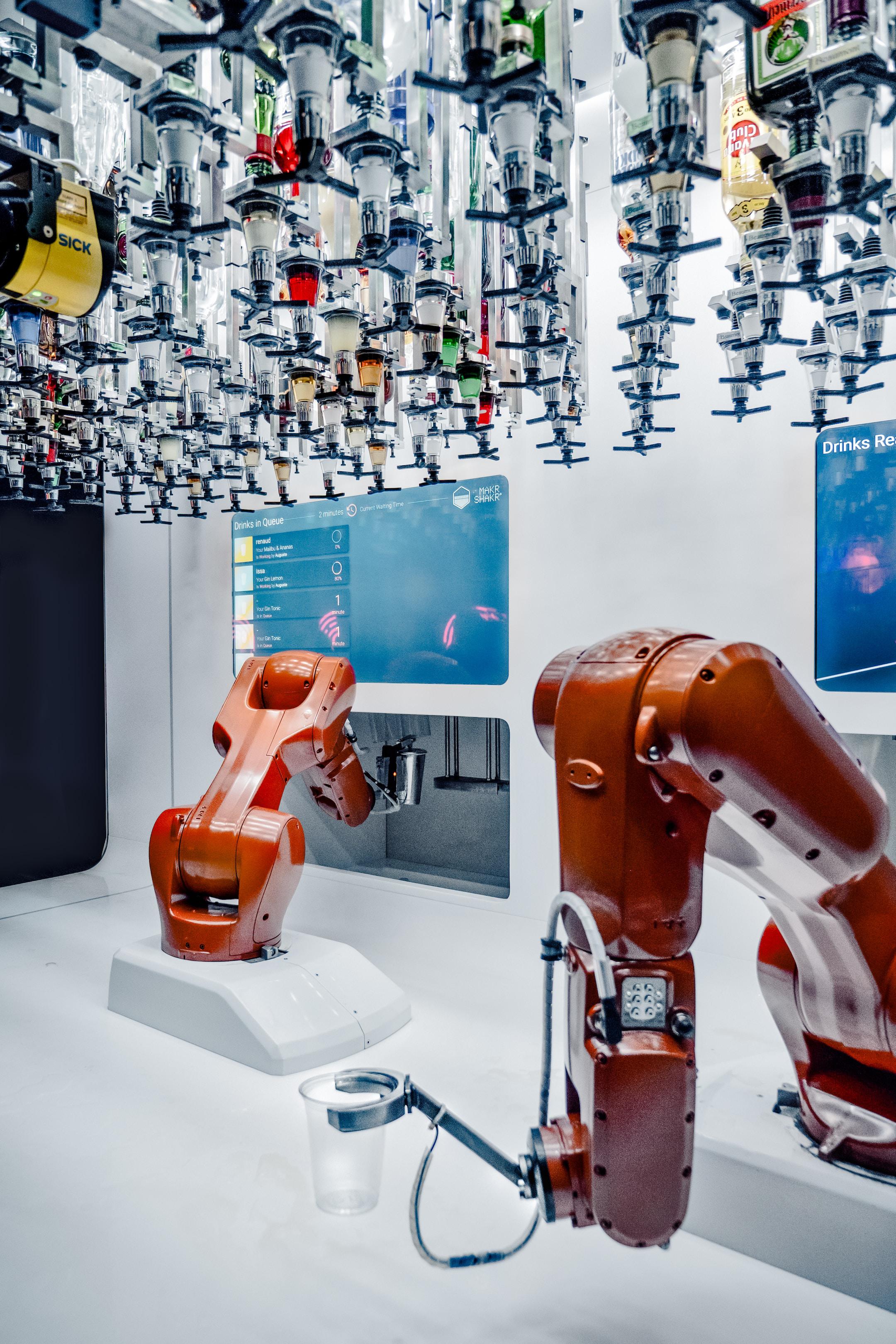
The biotech industry is a sector that is driven by innovation. Technological advancements have brought unprecedented changes to how biotech companies approach the research, development, and production of life-changing products in recent years. Automation plays a crucial role in this transformation. In this blog, we will explore the history of automation in the industry and outline four examples of the use of automation in biotech. Additionally, we will look into the benefits that come with the application of automation in biotech.
Automation through history
In the early 19th century, automation started on a small scale, with the mechanization of individual processes such as weaving, spinning, and milling. By the early 20th century, mass production was introduced in the automobile industry with the assembly line, leading to an era of significant industrialization. Then came the fourth industrial revolution, also known as Industry 4.0, which expanded automation beyond machinery into information technology. This informational automation has transformed the way that employees engage with technology, and has necessitated the emergence of the automation expert. Such experts specialize in specific fields, and have extremely niche expertise in the execution of automation in fields requiring minute margins for error, as in biotech.
Biotech has completely transformed the pharmaceutical industry, and automation has played a vital role in this transformation. Examples of this transformation include:
Robotics
Robots can handle lab tasks such as pipetting, dispensing of reagents, and cell culture management. Such skilled automation increases efficiency and accuracy while decreasing human error. Automated bioprocess platforms are another example of automation in the biotech industry. Bioprocess platforms automate fermentation and recovery operations, substantially reducing the production time of biologics drugs from days to hours. Automated systems also offer a significant improvement in quality, including batch-to-batch consistency.
High-throughput screening systems
High-throughput screening platforms provide rapid, efficient, and reliable drug discovery solutions. Using robotics, high-throughput screening can handle many drug candidates simultaneously, thereby reducing development time and increasing efficiency. This newfound speed makes drug development faster, more accurate, and more efficient.
Lab automation systems
These systems are typically integrated into lab information management systems (LIMS) , streamlining and centralizing data creation and tracking of samples, reagents, and test results. The automated management of this data results in better organization, greater accuracy, and less likelihood of errors.
Automated quality control
Not only does automated quality control (QC) increase accuracy, but it also speeds up the quality control process by efficiently analyzing data. Automated QC has a significant impact on analysis time and a businesses ability to make critical business decisions. This automation ensures the quality of manufactured products while reducing human errors and variability, leading to better regulatory compliance.
Automation is a crucial part of the biotech industry due to its ability to significantly decrease error rates, increase efficiency, and streamline production and development. The cost of technology has dropped rapidly in recent years, and more companies will adopt automation to be more competitive, especially as the biotech industry continues to grow. Companies that embrace automation and the efficient use of technology are the ones that are most likely to succeed in the future of the biotech industry. Therefore, as we welcome Industry 4.0, it's imperative that biotech companies take advantage of automation to lead the way in the creation of life-changing biotech products.
Bothwell Engineering is the perfect choice for your automation engineering needs. With our knowledgeable team of engineers, we provide valuable insight to any project. Bothwell Engineering also offers a wide range of services in order to ensure that no matter what your automation engineering project may be, we have you covered. Whether you’re looking for supply chain management or robotic programming, don’t wait – get in touch with Bothwell Engineering today.